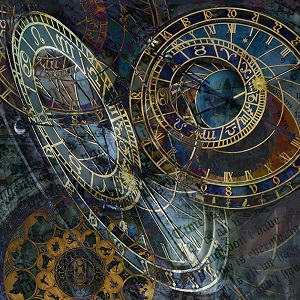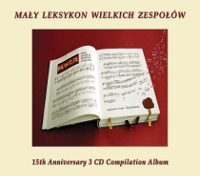When asked what type of music I enjoy, I normally answer saying that it depends on my mood, but I prefer music made by musicians, whether that be folk, jazz, blues, singer-songwriter, rock, prog, metal, industrial etc. Music does not have to be within a certain genre for me to enjoy it and years back I divided music into “good” (based on my own personal tastes) and “bad”. Long before Olav Bjørnsen and I became friends I used to follow his writings on different forums as I realised, he had very similar tastes to my own, which meant I could use his reviews as a guide to discover more music for myself. My tastes in music have expanded greatly over the years, and I am sure it is this which allows me to enjoy the work of John Holden so much as he is also not constrained by trying to fit into any particular box. Some people try to pigeonhole music, but the problem with that is music isn’t a pigeon! Here we find John moving away from what many people define as prog, and into areas which are far more theatrical. Just because he has used many progressive musicians and singers does not this a prog album make, at least not in its sense as defined by some, whereas I feel that music is progressing when it is crossing boundaries and bringing in elements from different areas.
I had to smile when I realised that Sally Minnear is one of the singers involved, as that means I will have reviewed her twice in one sitting and given the album she is singing on 10/10 each time. I am sure it is just a coincidence, but Sally could use that when looking for session work! There is so much on this album that one just does not know where to start. How about the flamenco influence on “Dreams of Cadiz”? It is a style rarely brought into rock, and is a delight from beginning to end (if you enjoy this I urge you to track down Carmen’s ‘Fandangos In Space’, surely the finest prog album ever to be totally devoted to the style). But hang on, “High Line” has Peter Jones performing at his very best as he walks through New York while Sally is her usual best on “The Secret of Chapel Field”.
The first five songs are all about 5 or 6 minutes in length, but then we get to album closer “KV62” which is much closer to 20 minutes. Telling the story of the discovery of Tutankhamun’s tomb, the narration is provided by none other than Jeremy Irons, and there are plenty of Egyptian musical motifs to remind us of where the story is set. This is an epic tale, with some wonderful underlying piano from Vikram Shankar, while both Peter Jones and That Joe Payne provide some great vocals as the two main protagonists. Again, this feels as if John has been inspired by the recent works of Clive Nolan, moving into a far more theatrical area, bringing the story to life. It would have been interesting to have heard this performed with a full-blown orchestra as opposed to “just” samples, but there will always be constraint on recordings like this.
Not only do we get all the lyrics in the booklet, but also a breakdown of what inspired each song and then a far more detailed breakdown again for “KV62”. It takes me back in time to when a record was so much more than just a record, as I would sit and stare at the artwork, read the words and whatever else was available, all while playing the music. In so many ways, this is a step backwards to when music was valued and not see as a disposable commodity of little or no worth. This is an album with great depth and presence and one I have enjoyed playing immensely.








